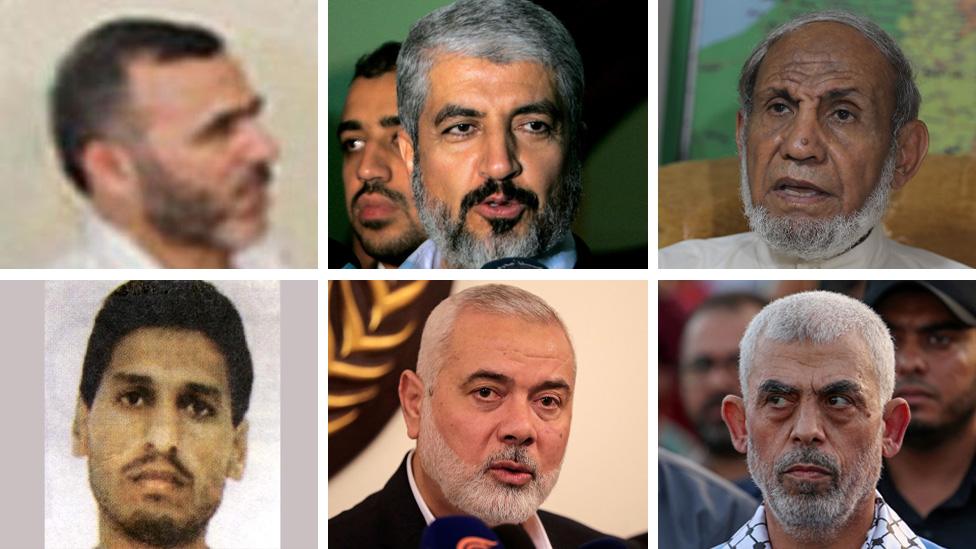Hamas hostages: Israeli mothers recall their children being kidnapped by Hamas
- Published
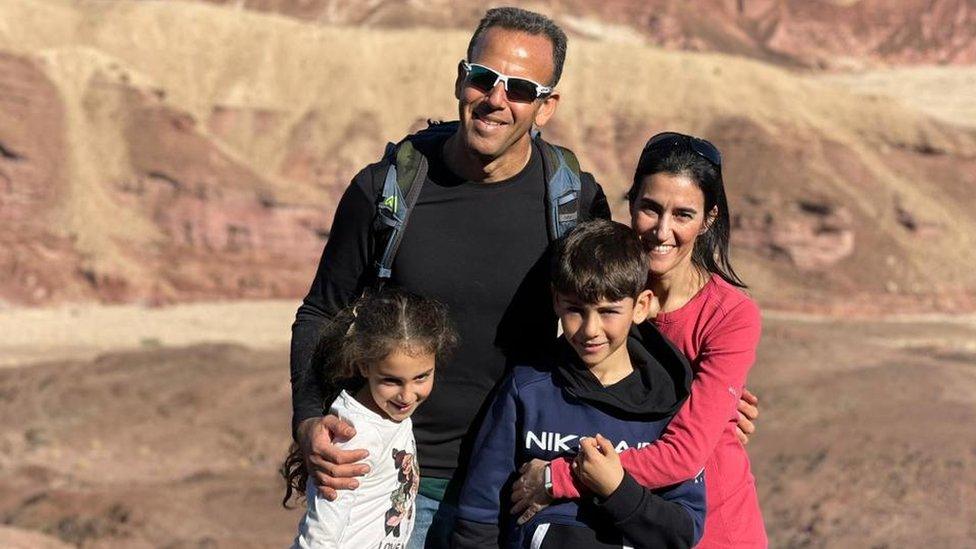
Batsheva Yahalomi's husband and 12-year-old son were kidnapped by Hamas, but she was able to escape with her two daughters, including a baby
Renana Jacob was not at home when Hamas's deadly attack on 7 October reached her kibbutz in southern Israel, but she quickly managed to reach her two sons by phone.
"The boys told me that they heard gunshots outside, and I started reassuring them that it was the army coming to save them," she said of Yagel, 12, and Or, 16.
It was not Israeli soldiers outside the home, however, but Hamas gunmen, who killed 1,400 people, mainly civilians, and took more than 200 people hostage in those attacks.
A few hours into the attacks, Ms Jacob said Yagel whispered down the phone to her that people had broken into the house.
"They were terrified," she said.
"The last thing I heard my youngest boy saying to me a month ago… he was begging for them not to take him. He said 'I'm too young. Please don't take me. I'm too young'.
"But they took him."
She has not heard from her two children since.
Yagel and Or are believed to be among the 242 people the Israeli military said Hamas is holding hostage in the Gaza Strip.
The World Health Organization (WHO) says it is "gravely concerned" about their conditions - especially those who are children, elderly or in poor health - and has called for their immediate release.
'We know nothing about them'
Ms Jacob was speaking to the BBC's The Context, in an emotional interview alongside two other Israeli mothers - Batsheva Yahalomi and Hadas Kalderon - whose children have also been kidnapped by Hamas.
The trio travelled from Israel to the UK to raise awareness about the issue, conducting media interviews and meeting with the Qatari ambassador to the UK. The Gulf state is acting as a mediator between Israel and Hamas - proscribed as a terrorist organisation in the UK - to try and free the hostages.
Ms Jacob said the ambassador has "given us the impression that Qatar is doing whatever they can to help, and I do believe him".
Ms Yahalomi also underwent a terrifying ordeal when gunmen entered her family's home on 7 October. She managed to escape with her two daughters - including a baby - after Israeli soldiers intercepted their would-be kidnappers near the Gaza border.
Her husband Ohad - who she said was shot by Hamas "terrorists" - and her 12-year-old son, Eitan, were taken into Gaza on motorbikes, and she has not heard from them since.
"This was the last time I saw my son… [I've] not had any contact, any news from him," she said.
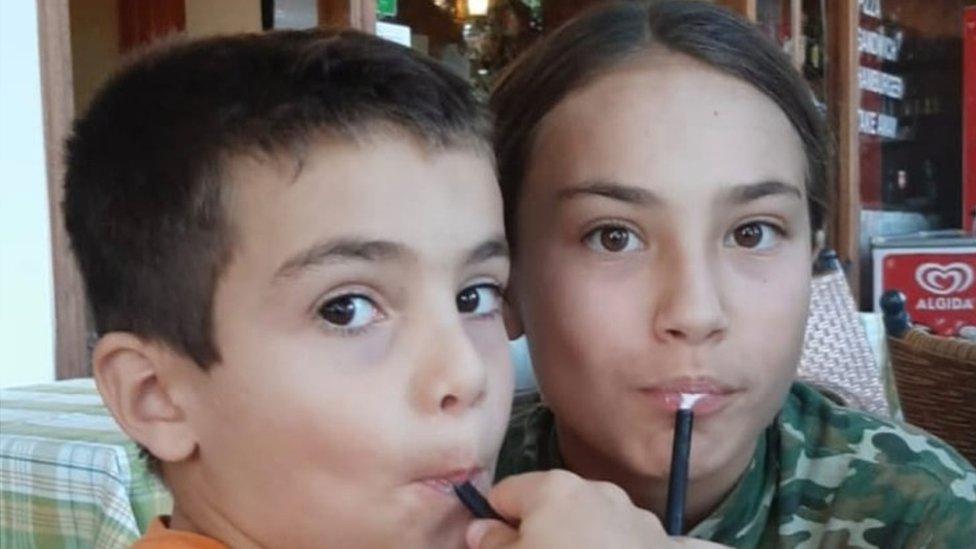
Hadas Kalderon's children, Erez, 12, and Sahar, 16, were also kidnapped by Hamas
Ms Kalderon had five members of her family - including her two children Erez, 12, and Sahar, 16, as well as their father, Ofer - taken hostage.
Her elderly mother and niece were killed by Hamas.
"I don't even have time to grieve. I didn't even go to the funeral because I have to fight for those that are still alive," she said, adding that the release of hostages must be the "main priority".
"We know nothing about them. They've been held in tunnels, deep underground. They can't see the sky, and the sun, and I'm sure they're terrified," she said.

More on Israel-Gaza war
Follow live: Latest updates
From Gaza: Palestinian given two hours to evacuate whole neighbourhood
From Israel: Pain still raw a month after Hamas attacks
History behind the story: The Israel-Palestinian conflict

Ms Jacob said 32 children are being held by Hamas, and called for their immediate release.
Israel has been launching near-constant air strikes on the Gaza Strip since the 7 October attacks.
The Hamas-run health ministry there says more than 10,300 people have been killed, including more than 4,100 children.
Some politicians have questioned the accuracy of those figures, but the WHO says it believes them to be reliable.
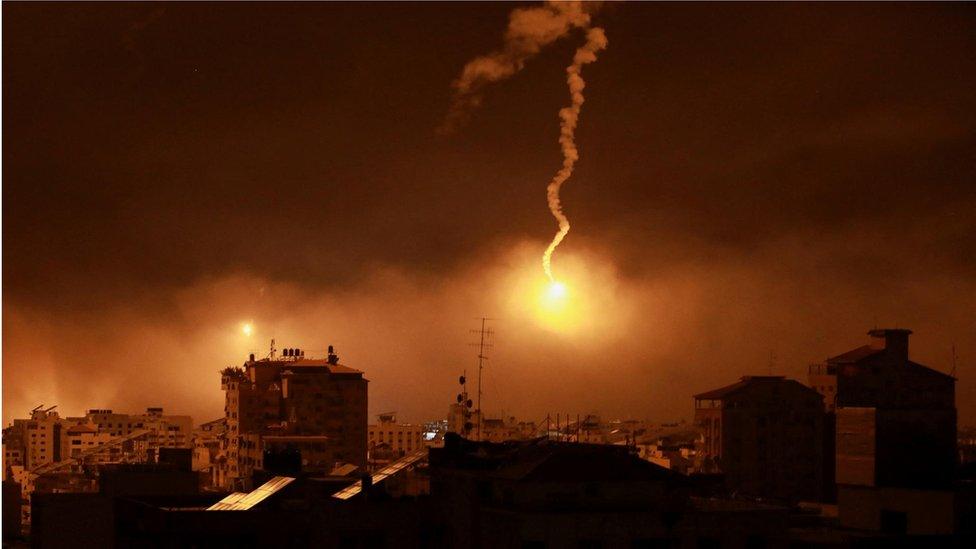
Israel has faced international criticism for its near-constant bombardment of Gaza since the 7 October attacks
Ms Jacob called for a "pause" to ensure that children in Gaza can also make it out safely.
"There's so much violence going on. But my heart goes out to every child and every mother who becomes a victim of this."
So let us just pause and have a children's time-out - get our children out and get the Gaza children out," she said.
As well as international criticism for the bombing campaign his government is overseeing, Israeli Prime Minister Benjamin Netanyahu has also faced anger at home, notably about the security failure that allowed Hamas to breach the border wall and kill thousands, as well as the lack of progress on freeing hostages.
So far just five hostages are known to have been freed.
Mark Regev, a senior adviser to Mr Netanyahu, also appeared on The Context and acknowledged a "terrible failure" in the security response ahead of Hamas' attacks. He was also asked about an apparent lack of communication with the families of those held hostage and said a "special directorate" has been established.
"We can only feel their pain and their suffering, and we're making a maximum effort to get out their loved ones," he said.
For their part, Ms Jacob, Ms Yahalomi and Ms Kalderon are focusing their energy on ensuring their loved ones are released as soon as possible.
"They disappeared from our life. We don't know when we're going to see them again," Ms Kalderon said.
Related topics
- Published8 October 2023
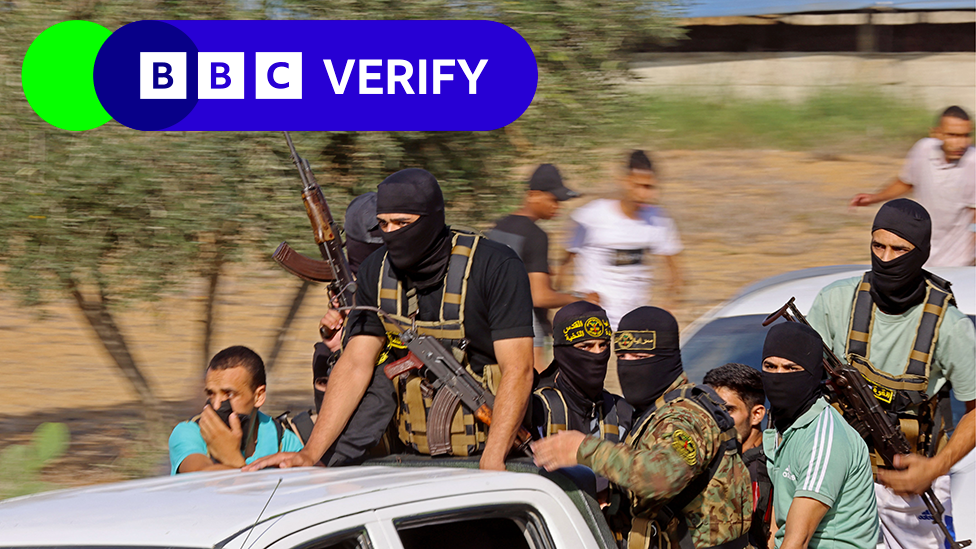
- Published7 November 2023
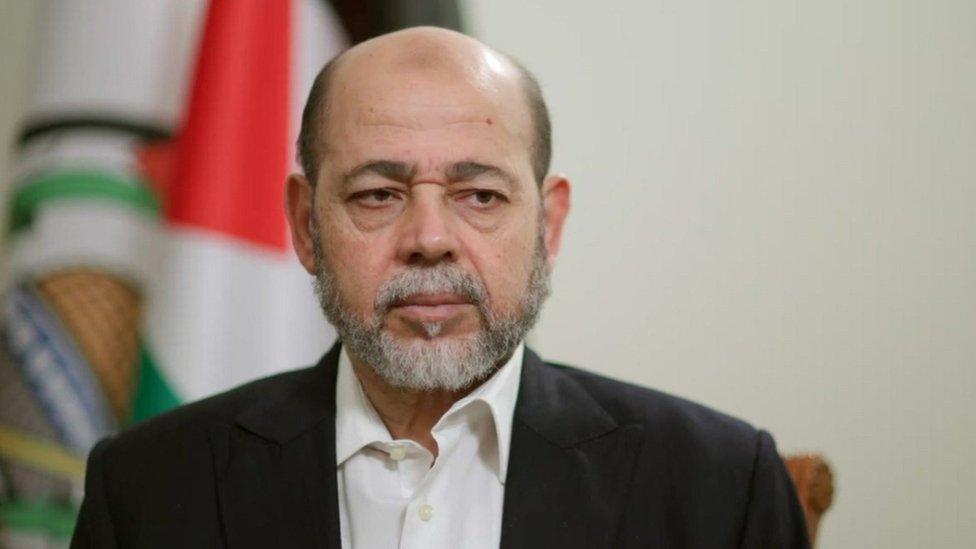
- Published21 January
